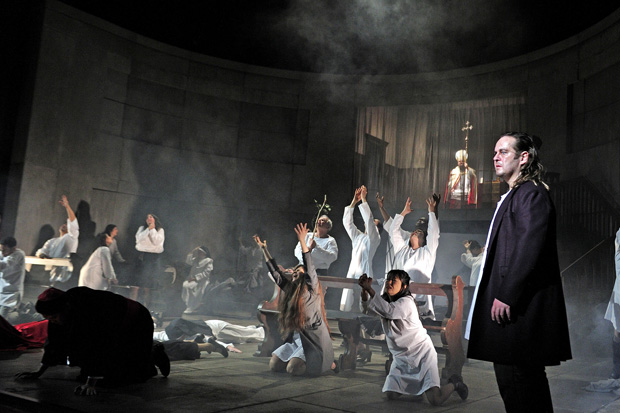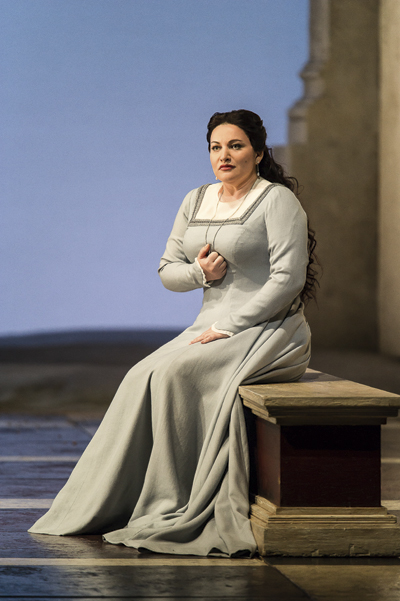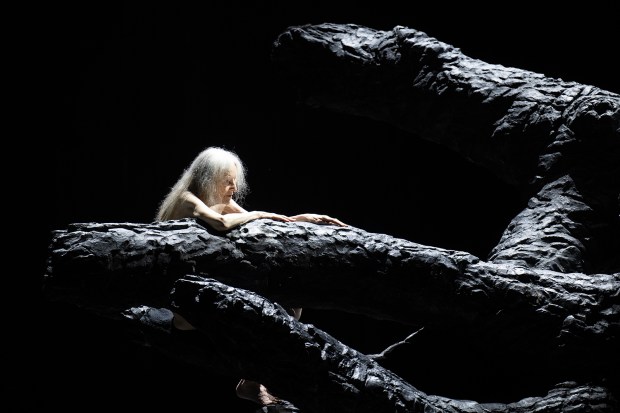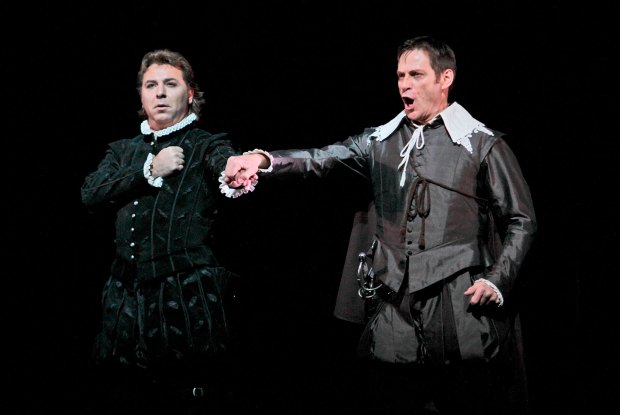It would be interesting to know why Tristan und Isolde was placed in the Proms programme in between Siegfried and Götterdämmerung. You might as well programme Othello between acts four and five of King Lear. Wagner wrote Tristan and Die Meistersinger between acts two and three of Siegfried, and to be really chic some company should have mounted the Ring and the two others in that order. But dramatically it makes no sense, and that partly accounts, I think, for the lukecool reception that the performance of Tristan has had in the press. All told, I found it one of the more striking performances I have heard of Wagner’s masterpiece in recent decades. For one thing, it was performed complete, as it now never is at the Royal Opera, so the great Act II duet was shown in its full non-stop inspired glory. Reviewers who were at the Albert Hall have claimed that the orchestra drowned the singers, but that didn’t happen at all listening on the radio, where one marvelled at the sustained climaxes and the balance between the voices and the orchestra, equal partners, as in no opera before, in creating the nightmare-cum-ecstasy of what Wagner described as this ‘most beautiful of dreams’, but which is much more about the sufferings of love than about its fulfilment or satisfactions.
Peter Seiffert was due to sing Tristan, but as so often he cancelled, and as so often Robert Dean Smith took his place. Smith must be used to that by now, and used, too, to the grudging reviews that he receives. I was present at Bayreuth when he first sprung to fame: Die Meistersinger was the last performance of the season in 1997, and rumours circulated in the second interval that Seiffert, who was singing Walther, wouldn’t make it through. Sure enough, probably for the only time in its performance history, the great Act III quintet was performed as a quartet, Seiffert’s voice having just packed up.
After Beckmesser’s humiliation in the final scene, as we waited to see what would happen, Wolfgang Wagner walked on to the stage, followed by Robert Dean Smith. W. Wagner gestured to Barenboim to stop the orchestra, launched into a long harangue in Franconian about Smith taking over from the ‘indisposed’ Seiffert, and finally gestured to Barenboim to resume. Smith delivered a decent account of the Prize Song, and his international career was launched. What one has to say about him is that his voice has no strong individuality, and neither, usually, do his interpretations. But I have never heard him do an ugly or insensitive thing, and he does stay the course; and he cuts a perfectly decent figure on the stage, and acts reasonably well, which is more than can be said for the other two leading ageing Wagner tenors on the circuit.
His Isolde, Violeta Urmana, had all the right ideas and was able to put many of them into practice, but her voice sometimes became unpleasantly edgy. The supporting cast was excellent, and the BBC Symphony Orchestra played magnificently under Semyon Bychkov, achieving an effect all the more intense for being so scrupulously proportioned.
Dean Smith turned up again a week later, this time scheduled, as Tannhäuser. This time he can fairly be said to have triumphed in a role that most tenors avoid. This relatively unpopular work, about which many people hold misconceptions, was conducted with the utmost conviction by Donald Runnicles, whose orchestra, the BBC Scottish Symphony, gave all they had, and it was generally enough; only in the shocking (still shocking — is it often enough realised what outrageous music this is?) Venusberg Music that Wagner wrote for Paris did I wish for a richer, plusher sound from the strings, especially from the violins. The brass were superb throughout, above all in the prelude to Act III, where they positively blazed. The cast was strong throughout. Christoph Pohl, not previously encountered, sang Wolfram as beautifully and as dramatically as anyone I have heard ‘live’. The two women in the titular man-without-qualities’ life were perfectly matched: Daniela Sindram made a sultry Venus, getting more out of Wagner’s oddly uninspired music for her than it deserved; and Heidi Melton made an ideal Elisabeth, pure of tone but without a hint of that professional virginity which can make the role seem so insipid. Runnicles’s pacing was ideal, and must have made many people rethink their fashionably moderate view of this admittedly problematic piece.
In between I went to see Carmen from Sydney Harbour, advertised as live but in fact recorded some months ago. It’s worth looking on www.cinemalive.com’s website to see what is coming up, but this wasn’t too promising. The audience sat on the shore at Sydney, while the performers sang and rudimentarily acted in the harbour. No scenery, just some lighting effects, and of course amplified voices, which meant wraparound microphones attached to the singers’ faces. The conducting was so basic that any sense of rhythm was out of the question. A pity that the Carmen, Rinat Shaham, didn’t have more of a chance to inhabit the role instead of making merely flamboyant gestures, which was all any of the performers could do under the circumstances. This kind of thing really is strictly for the enjoyment of the ‘live’ audience.
Got something to add? Join the discussion and comment below.
Get 10 issues for just $10
Subscribe to The Spectator Australia today for the next 10 magazine issues, plus full online access, for just $10.













Comments
Don't miss out
Join the conversation with other Spectator Australia readers. Subscribe to leave a comment.
SUBSCRIBEAlready a subscriber? Log in